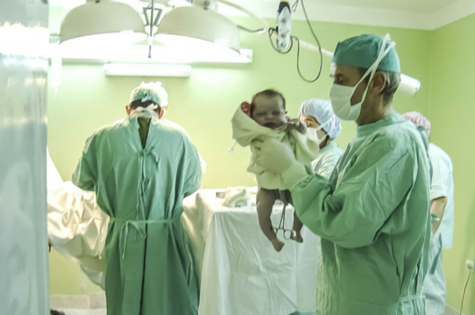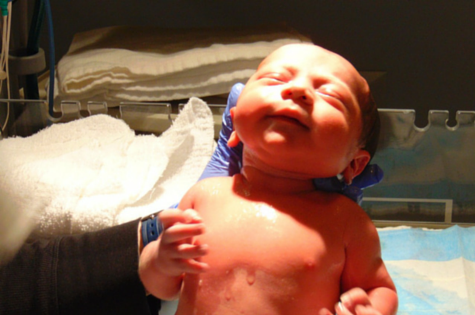One in every 200 ladies loses her child after an amniocentesis, in which the liquid around the creating embryo is tried for hereditary issues. A trial at Great Ormond Street Hospital of the new test - for pieces of fetes DNA in the mother's blood - recommended it could be savvy. The NHS is to choose on the off chance that it ought to be added to screening for Down's disorder. Around 750 infants are conceived with Down's disorder in the UK every year.
Every single pregnant woman is offered trying for hereditary issue. At first an ultrasound output and chemicals in the mother's blood are utilized to evaluate the probability of the infant having Down's. Anybody computed to have up to an one-in-150 possibility of an infant with Down's disorder is offered an amniocentesis - in which a needle is utilized to concentrate a specimen of amniotic liquid, which encompasses the embryo. Yet, those ladies, of whom most would presumably not have an infant with Down's, need to choose whether to have the dangerous test.
Pieces of the adding to hatchling's DNA normally wind up in the mother's circulation system. "Non-obtrusive pre-birth testing" - or NIPT - utilizes this DNA to test for major hereditary variations from the norm. It is now utilized as a part of about 100 nations, yet Great Ormond Street Hospital has surveyed how it could be utilized on the NHS.

Prof Lyn Chitty, who drove the trial, told the BBC: "It's an exact test, its 99% precise for Down's disorder.” "In our study it lessened the quantity of obtrusive tests by more than 80%, whilst really grabbing more instances of Down's disorder." On the other hand, it doesn't totally wipe out the requirement for an amniocentesis. Any individual who has a positive NIPT test outcome would even now require last affirmation with an amniocentesis. Dr Lucy Jenkins, head of research centre administrations at Great Ormond Street, called the test a critical achievement. "We realize that there's a little measure of the child's DNA really coursing in the mother's circulation system, so by taking only the blood test from the mother we can recognize the infant's DNA.
She respected the new test, saying: "I think anything that isn't obtrusive and anything that isn't going to have a danger of an unnatural birth cycle is great. I believe it’s useful for folks to be arranged and everybody has a privilege to pick what they are going to do with their own life." However, she included: "I think the issue originates from an absence of instruction in light of the fact that lamentably a great many people don't proceed with their pregnancies.
Dr Anne Mackie, its executive of projects, said: "Before NIPT can be securely presented we must make sure it is precise when utilized on extensive quantities of ladies and that there are quality-surveyed pathways set up giving the consideration, backing and data ladies need."
This story was originally published on http://www.bbc.com/news/health-33025227



















__small.png)










